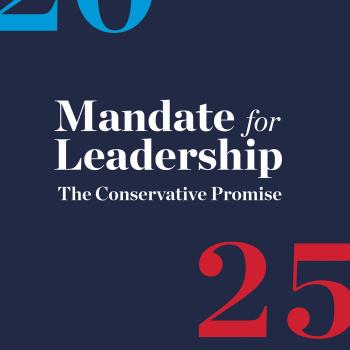Are UUs going to Mars?

Are UUs going to Mars? Why do we ask this question? Because this year, 2024, marks the 70th anniversary. Back in 1954 under the leadership of Ralph Wendel Burhoe (1911-1997), some UUs (Unitarian Universalists) established IRAS (Institute on Religion in an Age of Science). Dr. Burhoe once told me that he thought of the Enlightenment as a “revelation.” This revelation of reason should shame narrowly dogmatic religious traditions into becoming more open-minded, into incorporating scientific knowledge into their religious worldviews. This past week on Star Island we incorporated scientific knowledge of the entire universe into a compendious worldview still in constructive process. Are UUs going to Mars now to establish a terrestrial settlement on an extraterrestrial planet?
Habitability for Your Cosmic Future: AstroAnthropology Meets AstroEthics
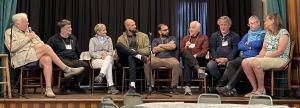
The 2024 Star Island conference theme was, “Hability for Your Cosmic Future: AstroAnthropology Meets AstroEthics.” SETI astronomer Seth Shostak and NASA astronomer Jennifer Wiseman distinguished between the search for microbial life within our solar system and the search for intelligent life on exoplanets elsewhere in the Milky Way. Keep awake. Anyday we will find that we are not alone in this almost unmeasurable universe.
Geologist Harry Connelly let us hold in our hand a most interesting mineral rich rock. It comes from an asteroid. It is older than planet earth, older than 4.5 billion years. Quite an experience to hold in one’s hand something that pre-dates our home!
Are UUs going to Mars? Should we say “good-bye” to Earth?
Should we surrender planet earth to a nest that we are befouling and fly Homo sapiens to live among the stars? Should we adopt something like the Space Renaissance philosophy: depart the confines of earth to colonize extraterrestrial habitats? No. Very little sympathy for this position was articulated by our conference consultants. Rather, we should love our earth and nurse it back to fecund health.
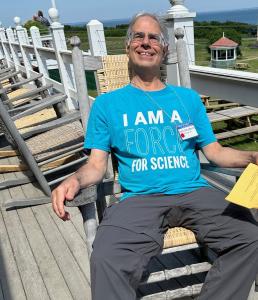 Evolutionary biologists Mark Shellhamer and Lucas John Mix emphasized that we Homo sapiens are inextricably embodied creatures. Further, the characteristics of our embodiment are determined by the specific biosphere on earth. We earthlings cannot simply leave earth and still be earthlings. The lower gravity during a space ship ride as well as when walking the surface of Mars will so weaken our bone structure that our spacefarers may not be able to return to our home environment. One way tickets to Mars might be the only ones on sale.
Evolutionary biologists Mark Shellhamer and Lucas John Mix emphasized that we Homo sapiens are inextricably embodied creatures. Further, the characteristics of our embodiment are determined by the specific biosphere on earth. We earthlings cannot simply leave earth and still be earthlings. The lower gravity during a space ship ride as well as when walking the surface of Mars will so weaken our bone structure that our spacefarers may not be able to return to our home environment. One way tickets to Mars might be the only ones on sale.
Are UUs going to Mars? If so, get ready to say your final “good-bye.”
What will our ETI neighbors be like?

The question of whether or not we earthlings are alone occupied conferees every day. On the one hand, the dissimilar biosphere hosting each extraterrestrial civilization will differ, making the physiology of our future space neighbors varigated. On the other hand, if the laws of nature are universal, then we could expect ETI to think rationally like we do. (Well, at least some of us!). We will not know, of course, until we meet them.
Islamic theologian Shoaib Ahmed Malik, co-author of Islamic Theology and Extraterrestrial Life, reported that Muslim scientists are currently taking the ETI question quite seriously. Christian process theologian Andrew Davis enjoined us to think cosmically, ro realize that we earthlings are now “anthropocosmic” creatures.
UFO and UAP visitations?
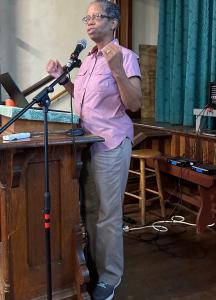
Whether or not UUs are going to Mars, we want to know if Martians or other exo-planet inhabitants are coming here? Are we being visited by extraterrestrials flying in space ships?
Curiously, astronomers such as Shostak and Wiseman are relatively confident that ETI lives on exoplanets. But they’re roundly skeptical that ETI are visiting us here.
For speculation about alien visitors, we must turn to ufologists and those who study UAP (Unidentified Aerial Phenomena). UU minister Patrice Curtis along with retired professor Linda Groff offered presentations that summarize the current state of the question. Yes, scientists are studying UAP. Yes, the US government and other governments are both acknowledging UAP as well as covering up what they know. Yes, awareness that we share our cosmos with space neighbors is likely to have a big impact on our religious traditions.
Watch for the proceedings of the conference appearing next year in Zygon, Journal of Religion and Science.
Conclusion
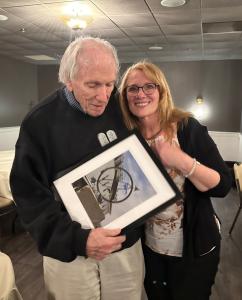
Are UUs going to Mars? Perhaps not in space suits. But certainly in their hearts and minds. So also are the non-UUs in attendance who answer Davis’ call to cultivate astrocosmic consciousness.
SR 1169 Are UUs going to Mars?
SR 1165 Would confirmation of extraterrestrial life cause a crisis for terrestrial religion?
SR 1166 Astronomer Grace Wolf-Chase & Astrotheology
SR 1167 Extraterrestrial Intelligence & Science
SR 1168 NASA and Priests Preparing for ETI Contact
Ted Peters, “Muslims, Christians, Scientists, and Extraterrestrial Aliens”
▓

Ted Peters directs traffic at the intersection of science, religion, and ethics. Peters is an emeritus professor at the Graduate Theological Union, where he co-edits the journal, Theology and Science, with Robert John Russell on behalf of the Center for Theology and the Natural Sciences, in Berkeley, California, USA. He authored Playing God? Genetic Determinism and Human Freedom? (Routledge, 2nd ed., 2002) as well as Science, Theology, and Ethics (Ashgate 2003). Along with Martinez Hewlett, Joshua Moritz, and Robert John Russell, he co-edited, Astrotheology: Science and Theology Meet Extraterrestrial Intelligence (2018). Along with Octavio Chon Torres, Joseph Seckbach, and Russell Gordon, he co-edited, Astrobiology: Science, Ethics, and Public Policy (Scrivener 2021). Along with Arvin Gouw and Brian Patrick Green, he co-edited Religious Transhumanism and Its Critics (Lexington 2022). He is also author of UFOs: God’s Chariots? Spirituality, Ancient Aliens, and Religious Yearnings in the Age of Extraterrestrials (Career Press New Page Books, 2014). Look for his newest book, The Voice of Public Theology, a collection of previous articles. See his website: TedsTimelyTake.com.
▓









